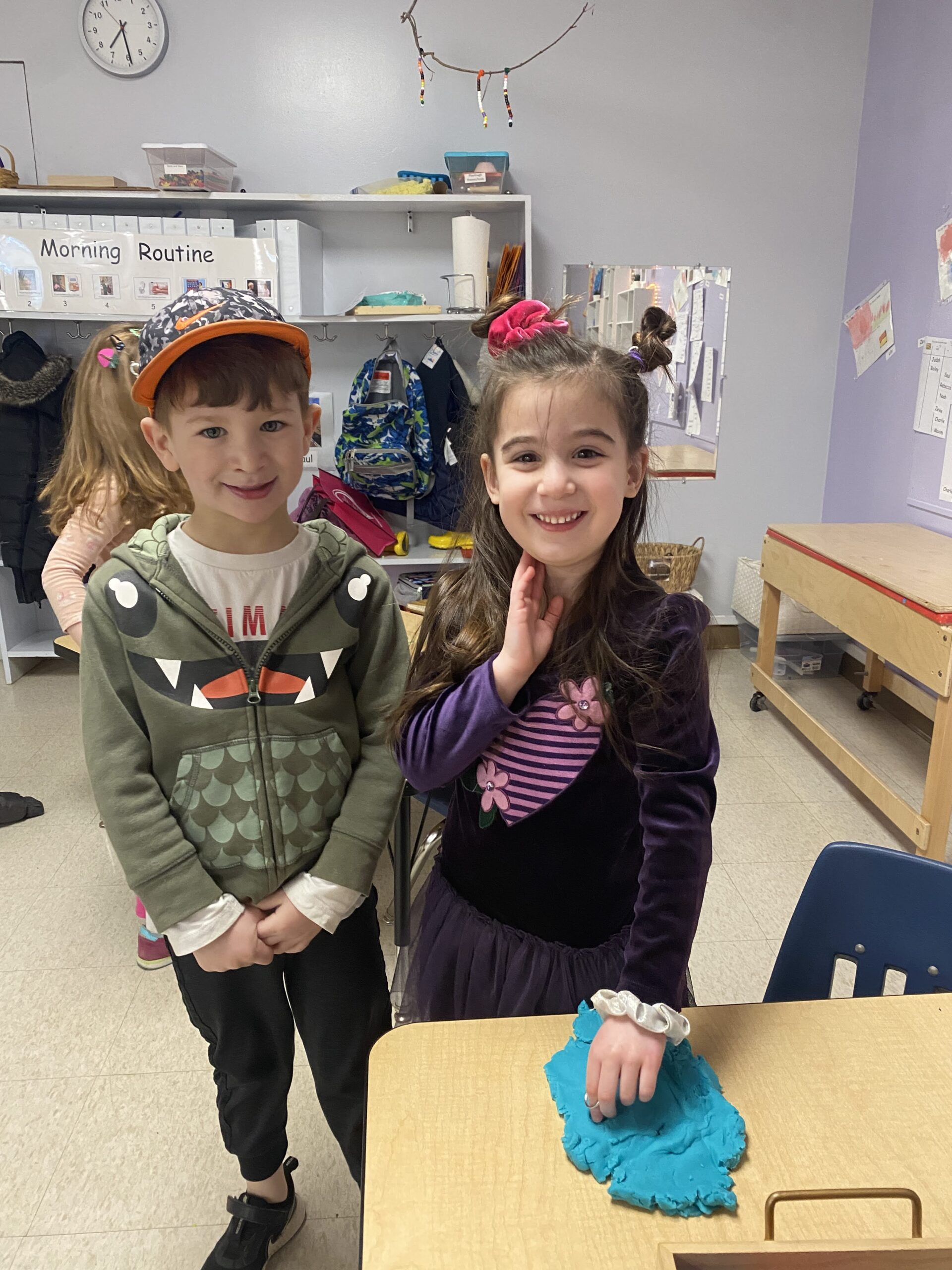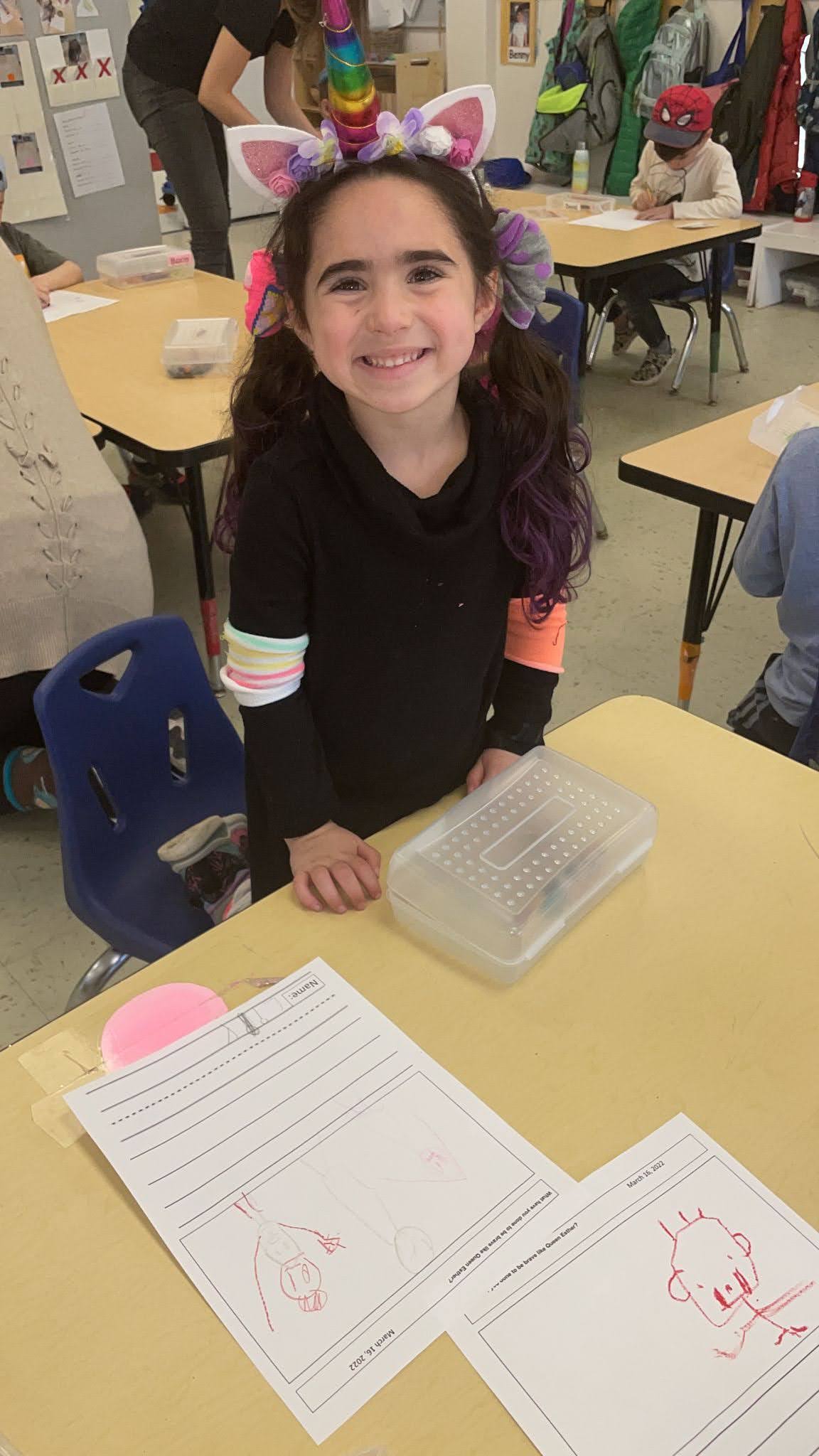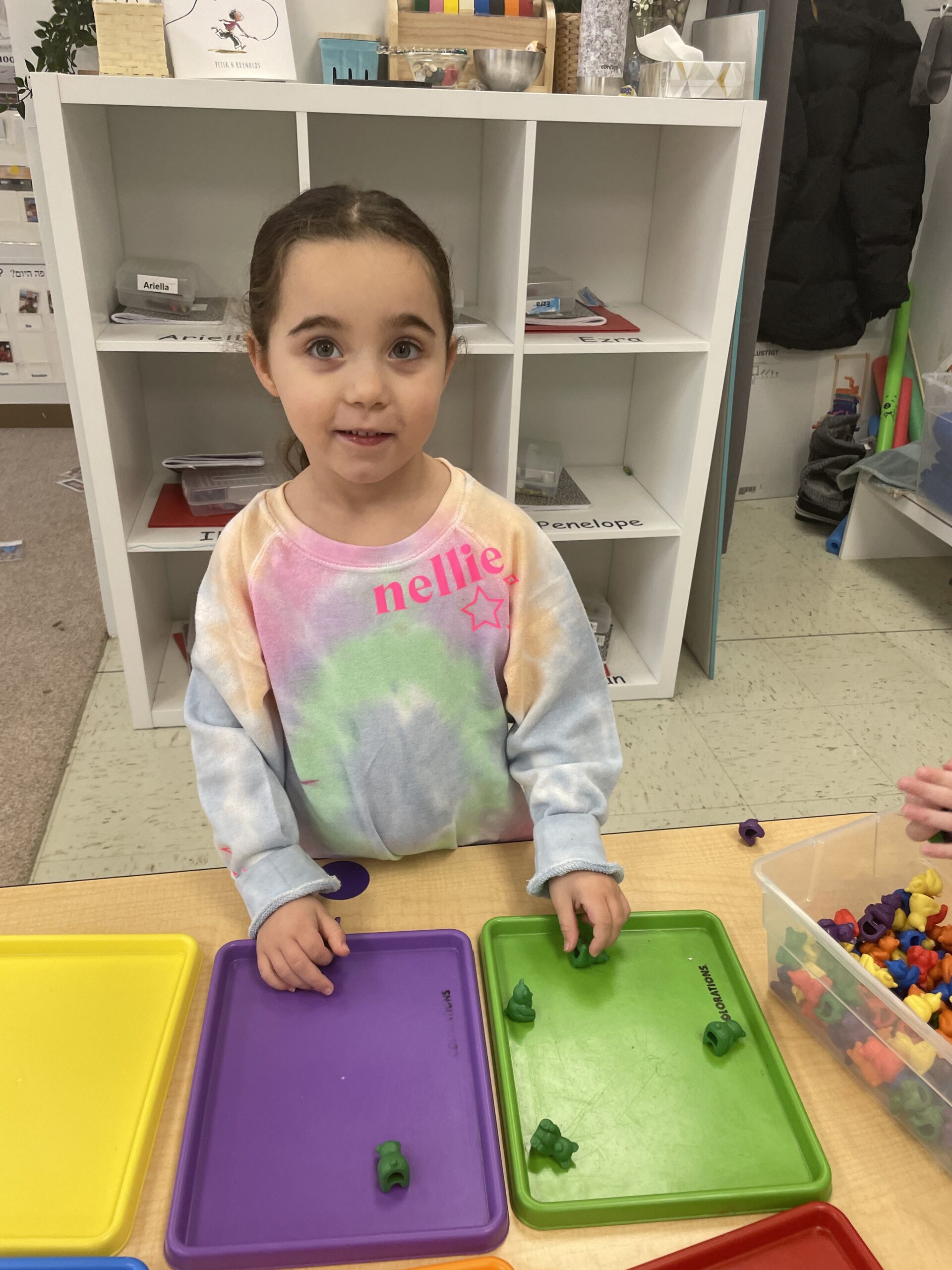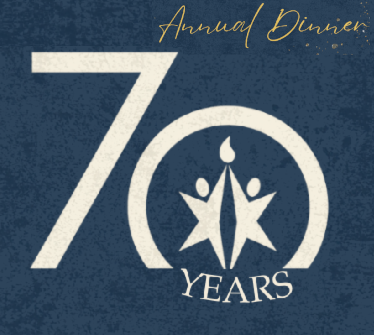
Pre-K Overview
Pre-K marks a child’s entrance into a magical world of learning, caring and sharing.
Our safe and warm environment sets the stage for children to grow and blossom, nurturing each child’s social, emotional and spiritual growth through knowledge, exploration and wonder.
We pride ourselves on differentiated instruction for our students. Small groups with approximately a 6:1 student to teacher ratio, provide our children with the opportunity to experience success and reach their potential. A robust program of support services is available from highly-trained specialists on our staff. By fostering each child’s special spark, we ignite their passion for learning and the wonderful journey ahead.
Pre-K Curriculum
Language Arts
Pre-Kindergartners focus on reading readiness skills in a fun and organic way. They are exposed to the alphabet and environmental print, are introduced to letter names, letter formation, and letter sounds. They learn that print has meaning and to recognize and write their own names. Writer workshop provides a forum for children to explore words and ideas.
Stories are an integral part of the Pre-K Program. Students listen to and retell stories, creating stories of their own. Through the lens of stores, children extend their thinking, develop comprehension, grow vocabulary and think critically. Stories encourage students to perform and use their imagination, fostering personal interests.
Language arts are woven into every aspect of the curriculum in Pre-Kindergarten as we lay the groundwork for life-long literacy.
Jewish Studies
A major focus of Jewish studies is to instill a love for Hashem, Torah, Israel, and pride in their cultural identity. Children acquire good midot (ethics) through their learning of Jewish values that include chesed (kindness), derech eretz (respectful behavior) and mitzvot (good deeds). They come to understand the needs of others less fortunate than themselves through the concept of tzedakah (charity). They not only learn blessings and prayers, but come to understand that Tefillah (prayer) is a time to talk to God, communicate in a personal way and demonstrate respect. Each week, children study the weekly Torah portion and learn the stories and lessons of our heritage. On Fridays, Pre-K students welcome Shabbat with a beautiful Shabbat Party. They learn about the Jewish Holiday laws and customs experiencing them creatively through art, music, excitement and joy!
Hebrew Language
Early childhood is the ideal time to tap into oral language development. Exposure to a second language enhances cognitive ability and the development of critical thinking and acute listening skills, as well as increased imagination and creativity. Using the Chalav U’dvash Hebrew program, children hear and acquire vocabulary with the purpose of making them feel comfortable conversing in Hebrew. Hebrew words abound in the early childhood wing and Hebrew language is integrated into many parts of the school day.
Mathematics
Our Pre-K children learn mathematics readiness through hands-on activities, games, cooking and songs. Concepts introduced include numeracy, counting, estimating, one to one correspondence, sorting by attribute, sequencing, calendar skills, shapes, patterns and concepts of more than/less than. Math is woven in throughout the day and integrated across various disciplines.
Social Studies
Children at Bi-Cultural learn how to cooperate in a classroom community. They participate in projects to help others, learn how to use manners and explore types of community workers. Students learn about safety rules in the classroom, on the bus and at home. They learn to recognize the flags of the United States and Israel and recite the Pledge of Allegiance and Hatikvah.
Science and Engineering
The wonders of the natural world infuse every subject in the classroom with joy and a sense of experimentation, exploration and developing conclusions. The children investigate topics throughout the year with a hands-on STEAM based approach (STEAM incorporates Science, Technology, Engineering, Arts and Math). Students will test ideas, build simple machines and connect their ideas in class discussions. We are excited to integrate Makerspace Jr. into our curriculum.
Physical Education
Bi-Cultural is committed to developing both the mind and the body. As our Pre-Kindergarteners
learn the rules and strategies behind many games, our underlying goal is to foster cooperation
and skill-building along with improving physical strength and coordination. Our objectives are to
help each child develop a sense of accomplishment and self-worth, to learn body control, and to
enjoy physical activity.
Library
Children have access to our school library weekly. They are exposed to quality early childhood
literature and visits from guest authors. Children practice the responsibility of borrowing and
returning books to the library and come to see the value of the library as an information
resource.
Art
Not only do our Pre-K students attend an “art” special each week, but art education is an
essential feature within the classroom. Students are exposed to a variety of materials, sensory
explorations, and different artists, styles and mediums. Through easel activity, they utilize fine
motor and gross motor skills. Students learn to collaborate with friends creating large murals for
plays and classroom holiday projects. They learn that art tells a story enabling language
development, expressive language, description and dictation.
Music and Movement
Musical movement activities help children develop music appreciation, rhythm and awareness
of their body space. Students learn to:
● Sing
● Develop a repertoire of Jewish and American songs
● Dance
● Listen to music with sensitivity and enjoyment
● Participate and match rhythms through singing, clapping and playing instruments
● Practice posture
Enrichment
There are many exciting educational opportunities that Bi-Cultural offers children throughout the
school year to enhance learning.
To name a few:
● Visits from field specialists
● Class presentations
● Special activities with Shlichim and B’not Sheru (Israeli Emissaries).
● Holiday celebrations
● Theatrical performances related to literacy
● Musical movement
● Puppetry
● Big Brother/Big Sister school-wide events
Social and Emotional Skills Development/The Positive Discipline Model
The Bi-Cultural Early Childhood teachers have undertaken extensive training in the Positive
Discipline model, which promotes positive decision-making, teaching expectations to children
early on, and encouraging positive behaviors. The approach was first developed by Dr. Jane
Nelsen, who established five core tenets for effective positive discipline, detailed below:
1. Helps children feel a sense of connection (belonging and significance)
2. Is mutually respectful and encouraging (kind and firm at the same time)
3. Is effective long-term (considers what the children are thinking, feeling, learning, and
deciding about themselves and their world – and what to do in the future to survive or to
thrive)
4. Teaches important social and life skills (respect, concern for others, problem solving, and
cooperation as well as the skills to contribute to the home, school or larger community)
5. Invites children to discover how capable they are (encourages the constructive use of
personal power and autonomy)
Support Services for Our Students
The learning needs of each child are a priorty at BCHA. A robust program of support services is
available at our school. With a team of highly-qualified learning specialists on our staff, BiCultural works closely with students and their parents.









